The river flows through Hardee, DeSoto and Charlotte County, extending about 100 miles south to the Charlotte Harbor estuary, making it the largest freshwater contributor to the harbor, the FCG said in the release.
The money will be used to buy conservation easements rather than outright purchases of property, said Julie Morris, executive director of the Florida Conservation Group. The nonprofit will target tracts that are already under consideration through the state’s Rural and Family Lands Protection Program.
That program uses state money to buy conservation easements from willing sellers. The owners forfeit development rights and pledge to continue agricultural operations, typically cattle ranching or citrus cultivation.
The FCG, a science-based entity founded in 2015, will conduct evaluations on potential sites, while the USDA’s Natural Resources Conservation Service will undertake its own evaluations, Morris said.
“They’re all a mix of natural and agricultural lands, so we primarily focus on cattle ranches, which are a mixture of pasture and native habitat,” Morris said. “Cattle ranches, from an ecological viewpoint, are the most desired land use that most closely mimics our native landscape, other than pristine lands. So we primarily focus on cattle ranches, but we also work with citrus growers and other farmers that are in strategic areas.”
The nonprofit concentrates on protecting tributaries of the Peace River, Morris said.
A list of 257 properties proposed for easements through the state’s Rural and Family Lands Protection Program includes some in Polk County that appear to lie within the Peace River watershed. Examples are Raley Grove, east of Winter Haven; Walter Farms, near Bartow; B Bar J Ranch, in the Lake Buffum area; and Gapway Groves, near Fort Meade.
Florida Forever, managed by the state’s Department of Environmental Protection, will also provide a match of $5 million, the release said.
Conservation in the roughly 2,300-square-mile Peace River Valley benefits Floridians in various ways, Morris said. The river supplies drinking water to more than 1 million people in Southwest Florida, and much of the land lies within the Florida Wildlife Corridor, a pathway of natural lands crucial for the existence of the Florida panther and other imperiled animals.
While Florida agencies and nonprofits have worked to conserve swaths of land to the north and south of the Peace River Valley, Morris said the watershed itself has not received enough protection.
“The Peace River Valley, for numerous reasons, is really underrepresented when it comes to conservation lands,” she said. “And there’s, as you know, encroaching development into the region and to especially these rural areas. And so, the Rural and Family Lands (Program) is a chance for people to keep their lands intact as working lands. And so, this federal award will allow us to really stretch our dollars and protect more land in a quicker amount of time.”
Incoming Florida Senate President Ben Albritton, R-Wauchula, a fourth-generation Florida farmer, celebrated the funding.
“The commitment shown by the Florida Conservation Group and their partners to safeguard the Peace River Valley exemplifies the best of our state’s dedication to preserving vital agricultural lands and natural resources,” Albritton said in the release. “This Regional Conservation Partnership Program funding, combined with support from state programs like the Rural and Family Lands Protection Program and Florida Forever, marks an extraordinary step toward ensuring the long-term protection of these lands. Together, we are setting a powerful precedent for conservation that will benefit Floridians for generations to come.”
